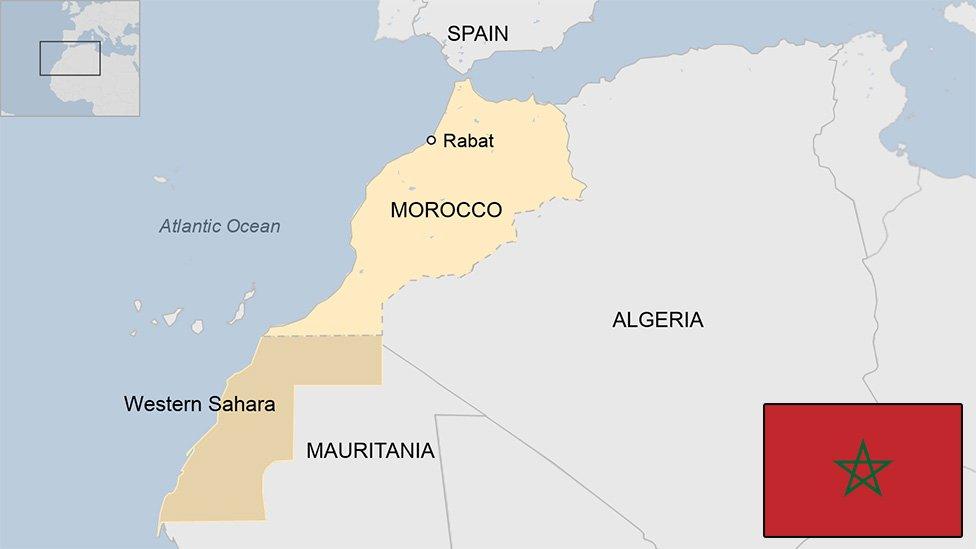Why Moroccans set themselves on fire to get a job
- Published
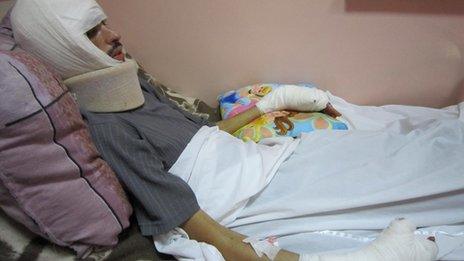
Self-immolation as an act of protest became common across the Arab World after Tunisian vegetable seller Mohammed Bouazizi ignited himself - and inadvertently set in motion the Arab Spring - in December 2010. Mr Bouazizi has inspired protesters in Morocco, but for different reasons, reports the BBC's Nora Fakim.
Mahmoud, 26, lies in the Ibn Roch hospital in Casablanca unable to move and barely able to speak, his head and neck are bandaged from a recent skin graft operation.
He is an unemployed law graduate who, along with four other men, set fire to himself earlier this year in Morocco's capital Rabat - as a warning, he says, to the government.
One of the men died. Mahmoud was lucky to survive.
He said the Moroccan government has let him and his fellow protesters down.
He claims police stopped supporters from supplying bread to them while they were occupying a government building.
Although the frustration is the same, Mahmoud's case is very different from Mr Bouazizi's in Tunisia. Mahmoud and his colleagues have been fighting to get a public sector job.
Struggling to speak clearly, he explains:
"We are highly qualified unemployed people in Morocco.
"Our protests are legal because we ask for the number of qualified graduates to be given priority for work."
Mahmoud, like many graduates without jobs, belongs to a group called the Unemployment Movement.
It is a loose coalition of associations from across the country, representing millions of Moroccan university graduates demanding jobs in the public sector.
Graduates prefer working in the state sector because a job with the state is a job for life. The private sector may offer better pay, but the jobs are usually part time and temporary.
This protest movement has been part of Rabat's landscape for the past two decades.
It resembles a full-time job because of the commitment it demands from demonstrators.
The movement has strict rules and rewards.
Organisers keep a tally of points for attendance and extra points go to those who tussle with the police.
The points determine who gets to the top of the list and gets a civil servant job.
'Laziness'
Moroccan-American writer Samia Errazzouki says the state deliberately set out to create the situation.
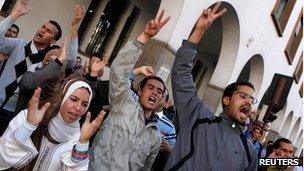
Unemployed graduates regularly protest in Rabat
"The public sector that had been growing for the past two decades was one that privileged political loyalty over efficiency.
"The result was a bloated public sector that started over-employing people with little skill, for the sake of appeasing groups like those unemployed graduates," she says.
Some, however, feel that the demand for a job in the public sector is born out of laziness.
Twenty-five-year-old Leila Abbas, an unemployed art graduate from Casablanca, says that she just needs a job to support her family:
"I don't understand how these graduates can go and protest every day instead of wanting to look for work. It is beyond me.
"If I got any job in the public or private sector I'd grab it with both hands."
According to official figures, unemployment among youths is 25-35%, a problem the government will have to tackle given that there are four youths for every adult in the country.
Hiring surges
And even if some unemployed graduates have the opportunity to work in the private sector, many end up leaving in the hope that there is still a job out there waiting for them with the government, as Jessica Freeland, co-director of a prestigious private Arabic school in Rabat, has found:
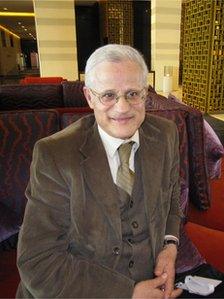
Economist Najib Ekesbi says faster growth is the only solution
"Sometimes the government hires in big surges, such that as many as half of our best teachers are offered government jobs at one time," she says.
"It's disastrous for us when that happens because we either have to offer huge incentives to get the teachers to stay or else hand half our classes over to inexperienced trainees."
I asked sociologist Abdelrahni Moundib what makes these graduates think they have the right to a job with the state. Surely if they were desperate they would take any job?
He says it is a question of mentality.
"Moroccan people think having a good job means working for the public sector because of the job security - but the second factor is that we don't have a strong private sector which can really offer jobs for young people."
The only solution is for the economy to grow at a much quicker rate, according to economist Najib Ekesbi from the Hassan II Institute of Agriculture and Veterinary Science.
He says that Morocco's problem is that its economy is only growing at 3-4% a year.
"In reality that needs to increase to 8%," he says.
"The state will never be able to solve the problem by itself and the only solution is to introduce self-employment schemes so that the youth do not need to depend on the public or private sector."
The country's new government has vowed to tackle youth unemployment by promising to create 26,000 jobs. But every year there are between 250,000 to 350,000 new graduates.
The newly elected government has a tough job on its hands.
- Published24 November 2011
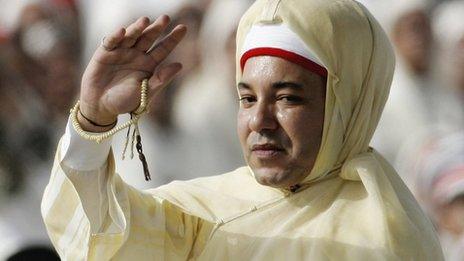
- Published12 January 2012
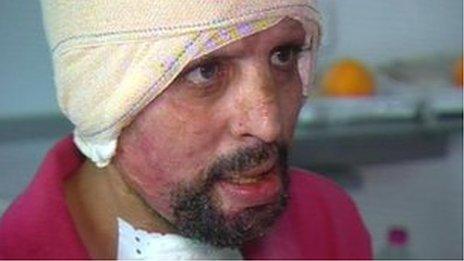
- Published9 February 2012
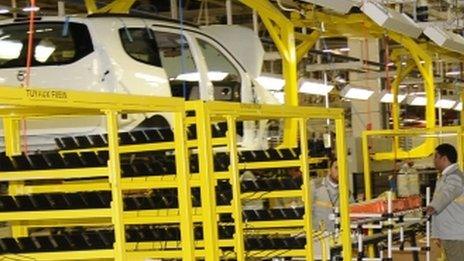
- Published28 October 2024
